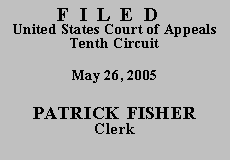

| UNITED STATES OF AMERICA, |
|
| v. | |
| JOSE MUÑOZ , also known as Joe, also known as Guerro, |
The district court overruled both objections. Addressing Defendant's objection to the § 3B1.4 enhancement, the court noted that even if Defendant did not recruit the named minor, evidence showed that he involved other minors in the criminal activities; and defense counsel virtually conceded the point. R. Vol. III at 5-6. The court also overruled Defendant's objection to the organizer-or-leader enhancement, saying:
Well, it seems to me that although he's clearly not the leader and these are not his drugs, he's not the kingpin in that sense, he does seem to fall within the definition of an organizer. He recruited some, if not all, of the drivers. He made sure they were paid, made sure their vehicles were registered properly so they could get through, suggested to them that they come up with certain alibis and props using their children to cross the border. So it's hard to think of how he would not be an organizer. He enlisted others; he recruited others. You only need to manage two others under Tenth Circuit law. I think he's within this definition. Although he may not be one of the Sopranos, . . . he certainly is an organizer on this trip or these multiple trips could not have happened without his organization. . . .
. . . .
I understand that he may not be the leader, but he is an organizer. These trips were clearly organized by him. He may have been doing it at directions, but none of this could have happened without him registering the vehicles, getting the spending money, passing along whatever routes, even if he's just the conduit, suggesting alibis to get past Border Patrol.
Id. at 14-16. The district court applied the enhancements, deducted three levels for acceptance of responsibility, and thus adopted the PSR's recommendation: total offense level 29, criminal history category I. Defendant was sentenced to 87 months' imprisonment, the bottom of the guidelines range.
Defendant appeals, again arguing that although he might be a manager or supervisor, his participation did not rise to the level of an organizer or leader. He concedes that he recruited some members of the conspiracy and facilitated transportation of individuals to Mexico for the purpose of drug smuggling, but he denies having any decision-making authority or receiving a share of the profits from the illegal activities.
Because the enhancement is written in the disjunctive, it is applicable if Defendant is either a leader or an organizer. United States v. Tagore, 158 F.3d 1124, 1131 (10th Cir. 1998). We review for clear error the district court's determination that Defendant was a leader or organizer. Id. at 1130. We find no clear error here.
In addition, Defendant raised Blakely v. Washington, 124 S. Ct. 2531 (2004), in a supplemental-authority letter filed under Fed. R. App. P. 28(j). He did not, however, file a motion for post-submission consideration nor request permission to file a supplemental brief properly raising Blakely, and he has not submitted anything regarding United States v. Booker, 125 S. Ct. 738 (2005). We do not consider issues asserted only in a Rule 28(j) letter and accordingly decline to address Defendant's Blakely argument. United States v. Lindsey, 389 F.3d 1334, 1335 n.1 (10th Cir. 2004).
The judgment of the district court is AFFIRMED.
ENTERED FOR THE COURT
Harris L Hartz
Circuit Judge
*.After examining the briefs and appellate record, this panel has determined unanimously that oral argument would not materially assist the determination of this appeal. See Fed. R. App. P. 34(a)(2); 10th Cir. R. 34.1(G). The case is therefore ordered submitted without oral argument. This order and judgment is not binding precedent, except under the doctrines of law of the case, res judicata, and collateral estoppel. The court generally disfavors the citation of orders and judgments; nevertheless, an order and judgment may be cited under the terms and conditions of 10th Cir. R. 36.3.